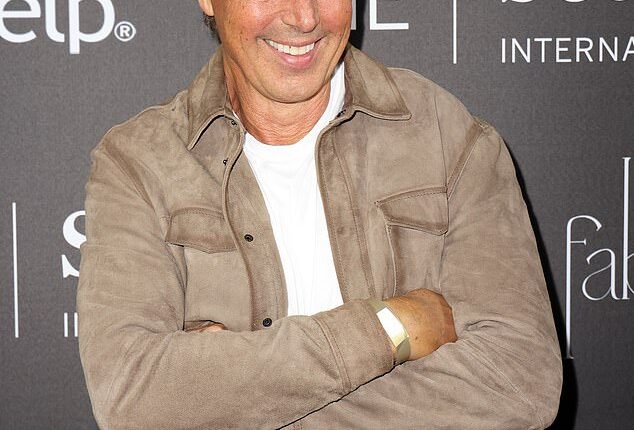A longevity researcher has revealed a simple lifestyle swap which he believes is key to a healthier, longer life.
Dan Buettner, a National Geographic fellow who has spent decades studying the diets of the world’s longest-living people, has encouraged others to cook at home as often as possible.
Appearing on the Live Well Be Well Podcast, Mr Buettner said it may seem like a simple tip, but ordering food in and dining out are thought to be significant contributors to inflammation and chronic health problems.
This is due to the extra sugar, salt and fat many restaurants sneak into meals.
‘The problem with going out to eat, even if it’s a “healthy restaurant”, is we tend to eat about 300 more calories when we go out than when we eat at home,’ he said.
‘Learn how to cook at home. Get the necessary equipment, find half a dozen recipes that you actually learn how to make and enjoy. That means you might have to start with 15 recipes.
‘Remember [to keep them] mostly wholefoods and plant-based. Nobody’s going to live longer eating roast beef or greasy chips.’
At the core of this advice, is the benefit of having control over ingredients.

Dan Buettner (pictured), a National Geographic fellow who has spent decades studying the diets of the world’s longest-living people
Research shows coking your own meals drastically reduces the risk of serious health conditions like type 2 diabetes.
A study published by PMC PubMed Central indicated those who eat home cooked meals consume higher quality food, consume less calories, spend less money on food, and experience less weight gain over time.
The research also aligns with Mr Buettner’s recommendation of consuming meals with plant-based ingredients to maximise health benefits.
To start integrating this into your lifestyle, begin by making small changes and introducing one vegetarian dinner into your weekly rotation.
Mr Buettner said adding beans into these meals is one of the best things you can do as they are the ‘true longevity food’.
‘The longest-living people on Earth eat beans every single day,’ Mr Buettner said in another video.
‘Forget the fear-mongering around lectins and the carnivore craze – those diets aren’t producing 90-year-olds still playing pickleball.’
Mr Buettner – who has researched so-called Blue Zones, regions where people live significantly longer than average – dismissed online health trends that demonise beans, saying they’re not only safe but essential.
‘People say, “I don’t want to eat beans because I’ll fart or get bloated”,’ he said.
‘But the reality is, if you soak beans, rinse them, cook them thoroughly – no lectins, by the way – you can avoid those problems.’

‘Learn how to cook at home. Get the necessary equipment, find half a dozen recipes that you actually learn how to make and enjoy. That means you might have to start with 15 recipes,’ he said (stock image)
His tip for beginners is to take it one step at a time.
‘Start with just a teaspoon a day if it upsets your stomach. Then the second week, two teaspoons, and the third week, three teaspoons,’ he said.
‘Your microbiome will grow the bacteria necessary to metabolise them. That way, everyone can work up to a cup of beans a day without any internal tumult.’
Easy ways to incorporate more beans into your diet include adding some chickpeas to your salads for extra protein and texture.
You can also blend cannellini beans into soups or dips for creaminess, or stir black beans through scrambled omelettes.
Another simple way is to toss kidney beans into chillis, tacos, or pasta sauces.
Mr Buettner says this gradual approach allows your gut to adapt – making beans not just tolerable, but an easy daily staple.
Calling out what he dubbed ‘this whole plant paradox nonsense’, he said it had confused people and done the ‘biggest disservice’ to eating.
He also challenged the notion that high-meat, zero-carb diets could match the health and longevity benefits seen in bean-rich diets.

Buettner – who has researched so-called Blue Zones, regions where people live significantly longer than average – dismissed online health trends that demonise beans, saying they’re not only safe but essential
‘The New York Times interviewed me, and I challenged them to find any population on the planet that eats a carnivore diet and lives a long time,’ he said.
‘People say the Maasai and Inuit are healthy and on carnivore diets – but their life expectancy is 63.’
His conclusion is simple.
‘If you want to be healthy in your 80s, 90s, and 100s and still playing pickleball, you don’t want to be eating a carnivore diet,’ he said.
Looks like the secret to a long life might just be sitting in your pantry.









